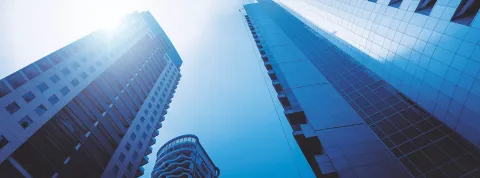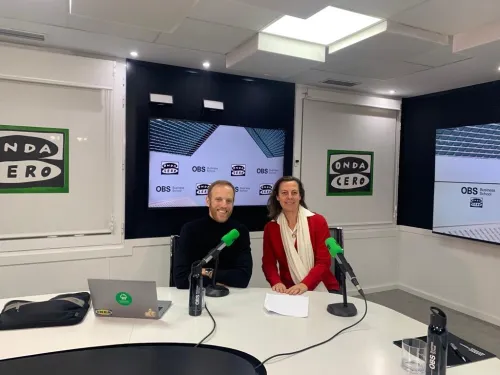
Executive Meeting with Guillem Bargalló
Sustainability is not a trend; it is a way of living and doing business
OBS Business School has held its First Executive Meeting of 2024 with Guillem Bargalló, director of sustainability at IKEA Catalonia. Together with Dr. Casilda Güell, Dean of OBS, Bargalló analysed the role of sustainability, which, far from being seen as a trend, he considers a way of life and a way of doing business.
The truth is that 2013 was a turning point: the collapse of the Rana Plaza building, a textile factory in Bangladesh, with the death of 1,130 people, was a slap in the face of social conscience that brought to light the "greenwashing" practices being carried out by some Western companies. This, added to the evidence of climate change and with the support of the COPs, has led to consumers increasingly looking for sustainable products and services. In fact, between 70% and 80% of shoppers nowadays consider sustainability when making their choices. "The big challenge now is to make it affordable so that not only people with more purchasing power have access to these products," says Guillem Bargalló.
We are on a continuum that is moving exponentially upwards towards change. Companies are now engaging and looking for ways to be competitive through sustainable solutions, and they have clear strategies. The snowball is growing unstoppably as evidenced by the implementation since January 1st of the European Corporate Sustainability Reporting Directive (CSRD), which includes more stringent measures for corporate disclosure of sustainability information.
Ikea and sustainability
As Bargalló explains, sustainability is so intrinsic to the IKEA brand that it is not even discussed in the company: "Since 2014, all of us in the company have been working in the same direction in three fundamental areas: offering solutions to live a sustainable life in the home, minimising our footprint as much as possible and maintaining our social commitment to both our employees and suppliers," he says.
But in a company with 250,000 employees, change takes time. Bargalló considers it important to celebrate small changes, because they take on an enormous dimension over time. "It takes three years from the time we think of a product to the time it reaches the shops, so patience is vital," he says. Every year, IKEA produces its Life at home report, which analyses how people live in their homes. Its aim is to understand the real needs of society in order to understand what is to come in the next 3-5 years. To do so, it surveys 37,000 families.
How does IKEA design its products?
Guillém Bargalló, director of sustainability at IKEA Catalonia, speaks of democratic product design based on five pillars: 1. its function, as it must allow the user to lead a sustainable life in their home; 2. its shape, comfortable and practical; 3. its low price, which the company can achieve thanks to its economy of scale; 4. quality, which must be maintained at all times; and 5. sustainability, as the product must be created with maximum savings and trying to extend its life.
"Today between 30% and 40% of IKEA products are produced by saving water and energy, and the goal is that by 2030 one hundred percent will be made from renewable or recycled materials, which will be a revolution because we will be able to eliminate thousands of waste products," says Bargalló. However, he also believes that work will have to be done to change the perception of buyers and make recycled products more visible. Advancing technologies will undoubtedly help to achieve lower prices.
Ikea is a company ready for the transition because its managers are clear about it, but is it the same for all companies?


